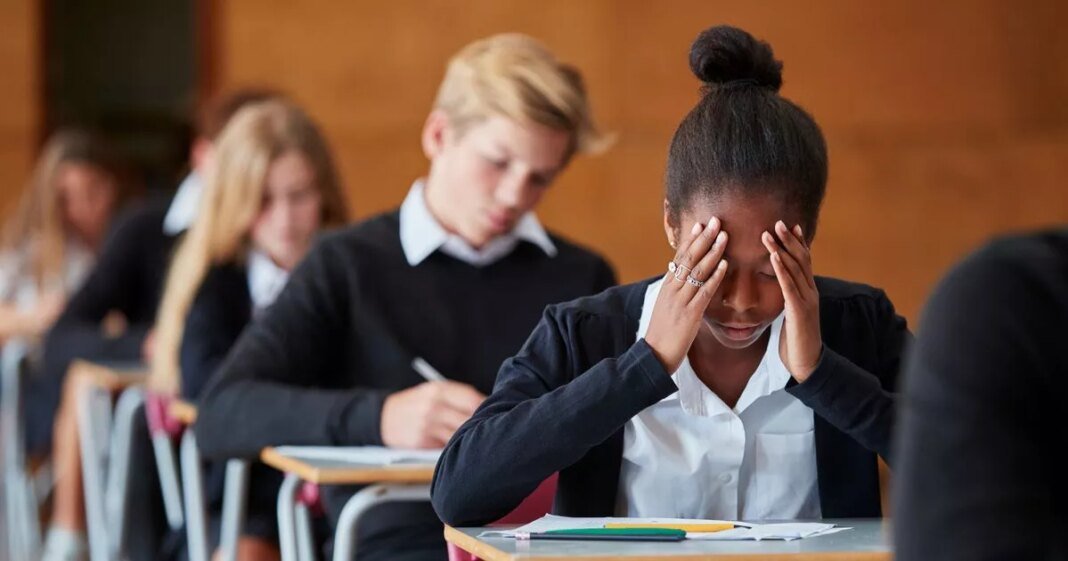Black schoolgirls feel ignored, misjudged and only seen through stereotypes by educators, a groundbreaking report has found.
The See Us, Hear Us report by community organisation Milk Honey Bees concluded that over 60 percent of Black girls felt they were unjustly punished, with only 14 percent receiving specialist support incidents were escalated to senior management.
The study which looked at focus groups of 121 girls from different schools in London revealed that there was a “disproportionate emphasis on escalation of punishment rather than support”.
Furthermore, Black girls were seen through a lens of lens of “defiance and aggression” which was found to have a detrimental their mental health and wellbeing.
But Milk and Honey Bees founder Ebinehita Iyere who co-wrote the report along with Njilan Morris Jarra and Sophie Arinde, warned that their findings could potential give a stark picture of how Black girls are treated across the country.
Speaking to The Mirror, Ebinehita said: “My heart always goes out to the girls outside of London and I pray for the day we’ll be able to take this research national because this is a national issue.
“We made sure that we went to areas where we would find a lot of Black girls but we also went to areas where Black girls are the minority.
“In the UK, we don’t explore and champion Black girls. We’ve just started to celebrate Black womanhood and that within itself causes so many issues.
“If Black girls are not seen as black girls then their womanhood is going to be impacted. This is where the angry Black girl grows into the angry black woman but its not true.
“First of all, we’re allowed to be angry because everybody gets angry and second of all, growing into that stereotype and having to carry that stereotype intersects with your work and personal life, your whole existence and has serious effects on wellbeing and attainment.”
Lead writer Njilan Morris Jarra recalled how the girls’ experienced mirror her own growing up.
Writing in the report she said: “At times, reading through transcripts and writing the report, I felt deflated and enraged by the familiarity of the findings.”
Heartbreaking experiences of Black girl in schools revealed how the perception of anger was at the forefront of educators minds and that the children were hype visible when thought to be misbehaving.
One testimony read: “For 10 minutes straight, I tried to ask a question, but [the teacher] wasn’t seeing my hand. She just ignored me and went to someone else. So, I asked the person next to me for the answer, and then she’s like, ‘Why are you talking in my lesson?’ even though the whole class was talking at the same time.”
While another said: “”Teachers only see anger and nothing else.”
But Ebinehita says that the report isn’t about “blaming” educators and that although the findings were negative, it was about creating solutions.
She said: ” Even though some of the things that came out were negative, we made sure that we spoke about what made the girls feel better.
“Creating safe spaces for Black girl for joy and creative expression. Those are the things Milk Honey Bees are underpinned by.
“This report was never done to blame educators, to blame schools to blame parents. This report was done so that together we can holistically think of how we can better support and eradicate the perceptions and support better wellbeing for Black girls.
“This is a systemic problem. Schools cannot just carry the responsibility on their own.”
Community Manager and Researcher at Milk Honey Bees, Sophie Arinde says that she hopes the report will make educators review their practices.
She said: “One of our goals was to look at practice and to review ways they might have missed signs.
“I think a lot of teachers subconsciously do group the needs of black girls together. A lot of people would assume the issues of a black boy would be the issues of a black girl, that in itself is a learning process for a lot of teachers.”
Overall, the women hope that See Us, Hear Us will spark change and lead to better wellbeing for Black girls as they find their way through to adulthood.
Ebinehita said: “It’s important when working with Black girls to listen to them, understand them, embrace them and protect them. That is what we want educators to do. It’s very important for their wellbeing for their transition into womanhood.”
At Reach and across our entities we and our partners use information collected through cookies and other identifiers from your device to improve experience on our site, analyse how it is used and to show personalised advertising. You can opt out of the sale or sharing of your data, at any time clicking the “Do Not Sell or Share my Data” button at the bottom of the webpage. Please note that your preferences are browser specific. Use of our website and any of our services represents your acceptance of the use of cookies and consent to the practices described in our Privacy Notice and Cookie Notice.



